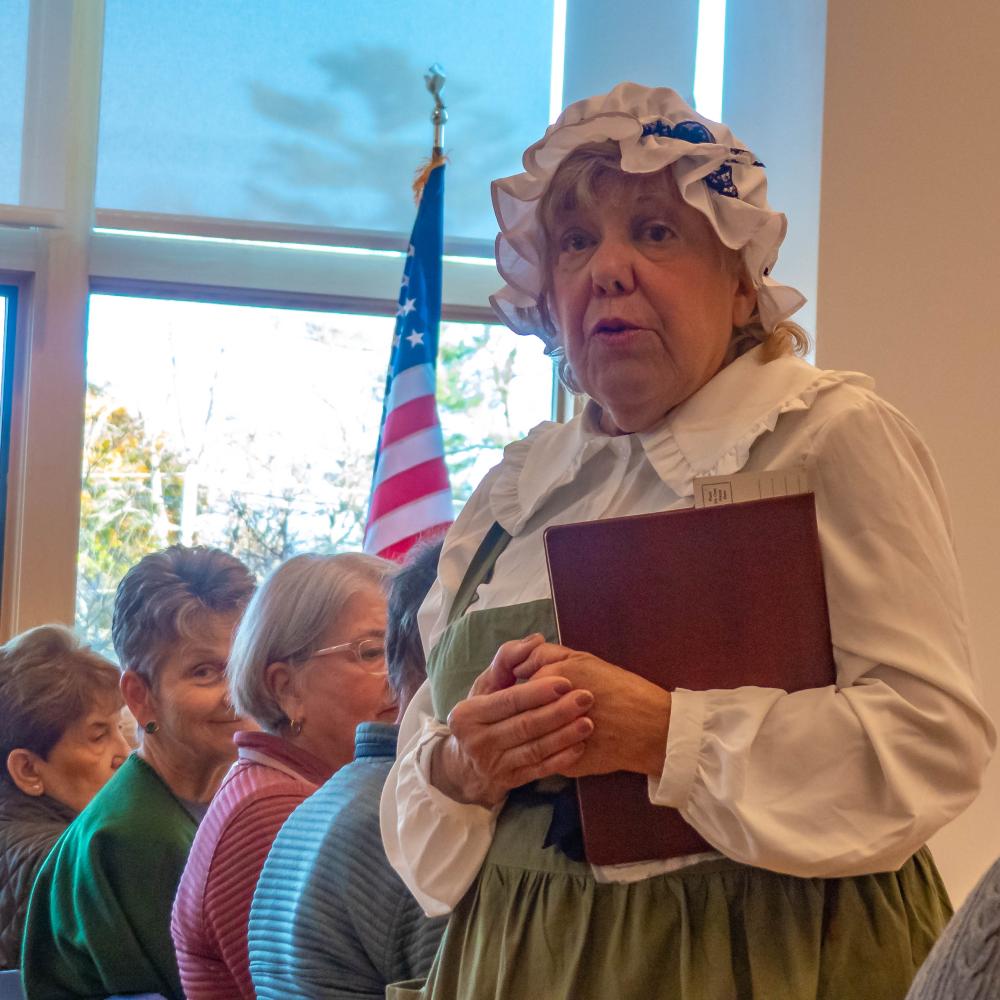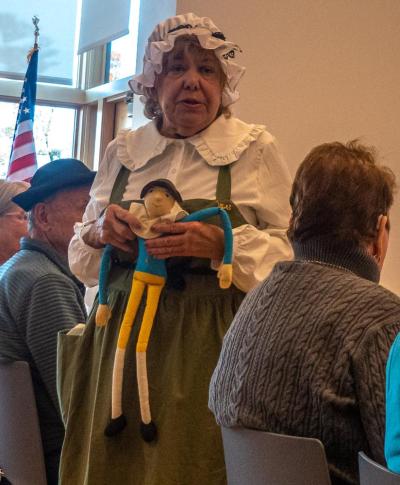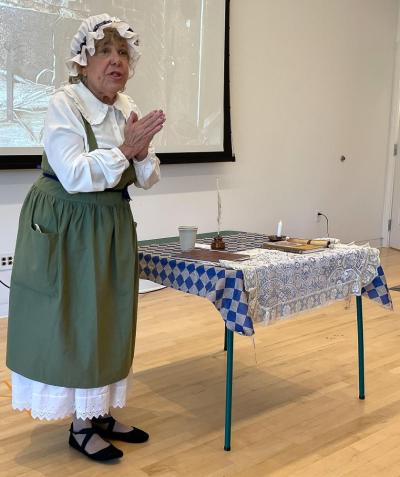Revolutionary women of colonial America come to town
The year may be 2024, but on Saturday, Nov. 9 it was January 1774, just one month after the Boston Tea Party.
The Daughters of Liberty were having a spinning bee, talking about the Tea Party, Phillis Wheatley and her poetry, Loyalists and politics all while spinning cloth so they wouldn’t have to buy British-made clothes.
Abigail Adams was there leading the meeting with a little assistance from present-day historian and performer Carol Cohen.
Wearing a bonnet and a green apron over a white dress, Cohen brought Abigail to life, and, with the help of several audience members, introduced Phillis Wheatley, Mercy Otis Warren and Deborah Sampson.
Other audience members were given questions to ask during the performance, such as how a Patriot should — or could — get along with their Loyalist neighbor.
Eighty-five people attended the event, which was held at the North Branch Dartmouth Library and hosted by the Friends of the Dartmouth Libraries.
As the United States’ 250th anniversary approaches, Cohen said she expects to see the release of more books and films about the revolutionary war period and individuals, but she added that she does wonder how many notable women of the time will be talked about.
“Last year, when the 250th of the Boston Tea Party happened and I saw that they were doing programs, they weren’t talking much about the women,” Cohen said. “So that’s when I said, ‘I think I would like to do a program with the women.’”
During the Tea Party, the colonists, dressed as Native Americans — which was believed to be Sarah Bradlee Fulton’s idea — destroyed only tea, Cohen said.
Other goods on the ship, such as books of Phillis Wheatley’s poems, remained untouched.
Colonials also started making their own tea and their own clothes so they wouldn’t have to purchase British goods, Cohen said.
After her performance, Cohen switched to a slide show presentation to further highlight the roles Abigail Adams and five other Daughters of Liberty — Mercy Otis Warren, Phillis Wheatley, Sarah Bradlee Fulton, Patience Wright and Deborah Sampson — played in colonial America.
“I wanted to include Abigail and Mercy Otis Warren and some of the other women who I knew were involved in our independence in Massachusetts,” Cohen said. “This is really the cradle of liberty.”
Many of the women Cohen talked about were at the spinning bee, but Patience Wright wasn’t one of them because she was in England spying for the Patriots at the time, Cohen said.
Wright originally went abroad to work on her artwork, but as tensions rose in the colonies, she started making busts of notable people.
While she worked on the busts, she talked with her subjects, gathering insights and information that she shipped back to the colonies hidden inside the heads of identical busts, Cohen said.
And as for Deborah Sampson, she wanted more hands-on experience during the revolution and dressed as a man so she could fight. She was only found out after she got hurt and needed to be undressed to treat the wound, Cohen said during the presentation.
“I think in these times it’s important for people to come out and learn about history and civics, which is kind of not taught so much anymore,” Cohen said.

















